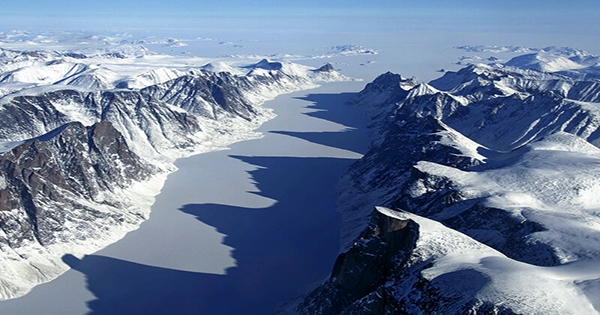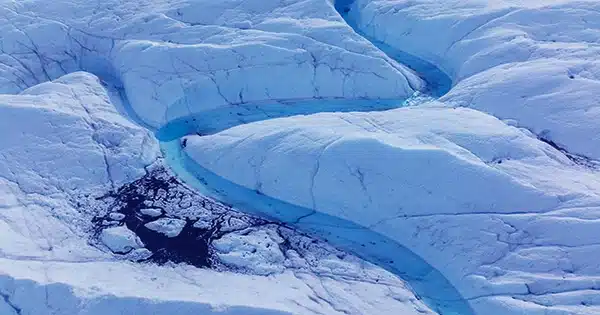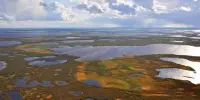According to a study published on Wednesday in the journal Nature, the Greenland Ice Sheet lost 5,091 square kilometers of area between 1985 and 2022. This is the first entire ice-sheet-wide estimate of area loss on that scale.
This reduction reflected the loss of 1,034 gigatonnes (1.034 trillion lb) of ice as glaciers receded and shed ice through “calving” – when ice chunks break off from a glacier.
The study is also the first to accurately determine how much ice Greenland has lost owing to glacial retreat.
It appears that prior estimates of changes to the Greenland Ice Sheet’s mass balance – how much snow and ice is accumulated each year vs how much is lost – underestimated those losses by up to 20% by ignoring glacial retreat.

The lost 5,091 square kilometers are roughly the size of the island nation of Trinidad & Tobago.
The study analyzed glacier location variations over time using over 200,000 satellite and AI measurements.
“In Greenland, we have these areas around the edges where everything is just kind of retreating and crumbling,” explained research co-author Alex Gardner, an earth scientist at NASA’s Jet Propulsion Laboratory.
“Previous approaches were not particularly effective in measuring that shift in the ice sheet. But the shift is enormous.”
The Greenland Ice Sheet is one of the world’s two remaining ice sheets, the other stretching across the Antarctic continent. It is made up of hundreds of glaciers and accounts for around 80% of Greenland’s land area.
If completely melted, the Greenland Ice Sheet would raise world sea level by around 7.4 meters.
With climate change warming the Arctic four times faster than the rest of the globe, scientists say it is unavoidable that the melting of the Greenland Ice Sheet will raise sea levels by at least 27 cm due to previous warming.
According to scientists, the latest estimate of ice loss from glacial retreat will have little effect on global sea levels but a significant impact on ocean circulation.
That much freshwater supplied to the salty ocean may enhance coastal currents around Greenland and diminish the Atlantic Meridional Overturning Circulation, which transports water from north to south and gives warmth to Europe.
















